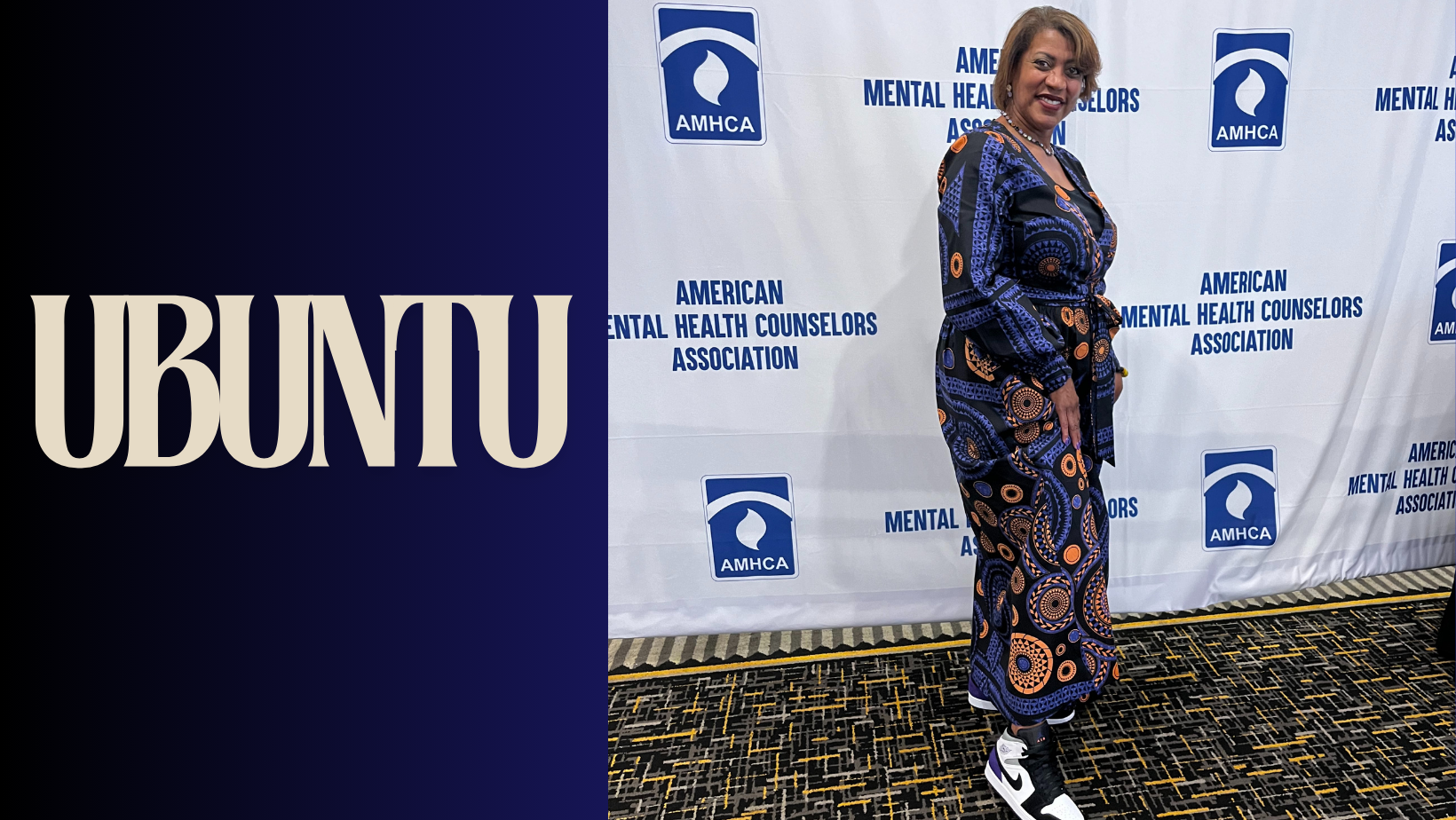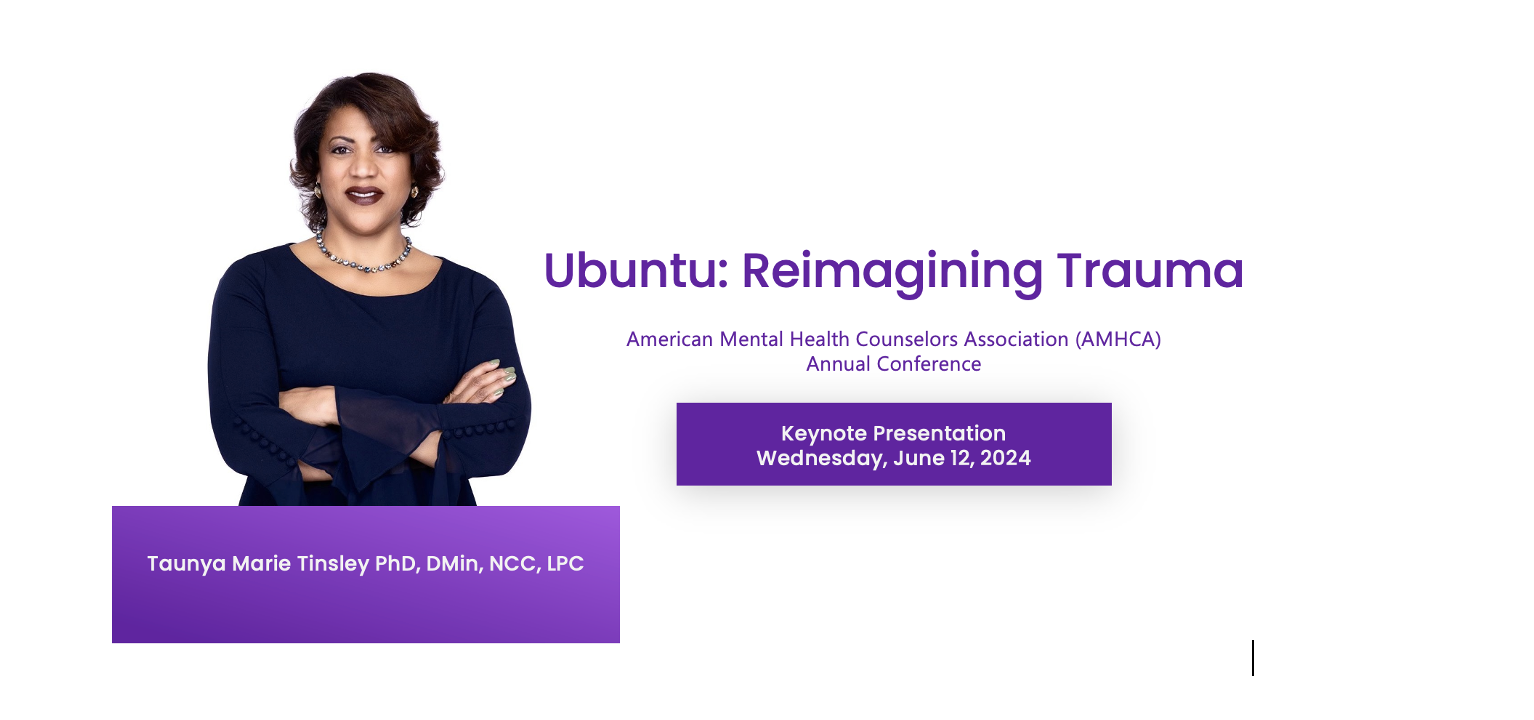Utilizing the Principles of Ubuntu to Reimagine Trauma

I have been on a mission to raise awareness about the widespread
presence of trauma in our fast-paced, interconnected world. My aim is to
emphasize the importance of culturally sensitive and empowering strategies, sparking
a sense of urgency and comprehension amongst mental health and wellness professionals.
One of those strategies is the use of Ubuntu that encourages collaboration and cooperation among individuals and communities, leveraging the power of interconnectedness and cultural pride to create inclusive environments that support healing and collective well-being.
The Meaning of Ubuntu
The word Ubuntu means "I am because we are." Ubuntu is
about "how we are all connected and in need of one another,"
"When we lift up and love someone else, we are lifting and loving
ourselves." What does
Ubuntu mean? “I am what I am because of who we all are, I am because you are, I
am because we are, shows a togetherness brought about through facilitation and
a strong connection to the world and community around us. Ubuntu has its roots
in humanist African philosophy, where the idea of community is one of the
building blocks of society. It's about "how we are all connected and in
need of one another. "When we lift up and love someone else, we are
lifting and loving ourselves."
In this week’s blog I hope to increase your knowledge of this healing-centered practice that can be incorporated into not only your work but also your personal life, fostering healing, resilience, and empowerment. In order to do this I will be guiding you through my spiritual journey of how I transformed and reimagined my life, personally and professionally, as a clinical mental health counselor, utilizing the principles of Ubuntu. This is the short version, but in my book available on Amazon, ”Four Quarters: A Cultural and Developmental Approach to Transforming Your Spiritual Autobiography” you can read the entire story.
My Ubuntu Story
As a Black/African American Christian Woman infused with an intersectionality of identities, I acknowledge my ancestors for the wisdom they have instilled in me. I also recognize my team and my family, whose words and stories we share. My family's starting team members include my mother, maternal grandmother and grandfather, and three maternal uncles: Uncle Lindell, Uncle Byron, who was 11 years older than me; and Uncle Aaron, who is eight years older than me. Because of our closeness in age, my uncles Byron and Aaron were more like brothers to me than uncles.
My maternal grandfather, whom I loved dearly, contributed to my personal and spiritual growth and stressed the importance of being aware of who I am as a person and as a spiritual and Christian being. It was essential to both my grandmother, a praying woman, and my grandfather, a deacon in the church, that I develop into a person who could understand my spiritual journey and faith development and endure trials so that I could teach and counsel others.
Another key individual in my journey was my high school basketball coach, who infused religious homilies about basketball, faith, and courage, and shaped my identity as a young African American Christian woman. As I delved deeper into my spiritual journey, I came to the profound realization that basketball and sports, which my grandfather had forewarned me, would be essential for navigating life's trials and tribulations and served as influential self-protective factors.
Two profound experiences have shaped my spiritual growth and ignited the passion that fuels my dedication as a clinical mental health counselor. The first of these experiences is the heart-wrenching loss of my beloved maternal uncle Byron at the tender age of 52. As I previously mentioned, Uncle Byron, eleven years my senior, assumed the role of a protective older brother. My adoration for him knew no bounds. During my formative years in Minneapolis, MN, he became my steadfast guardian, shielding me from the trials and tribulations of adolescence. Tragically, my uncle Byron was diagnosed with a trifecta of mental health conditions - depression, bipolar disorder, and schizophrenia - during his early adulthood. For nearly three decades, he grappled with coming to terms with his diagnosis, resulting in tumultuous relationships, maladaptive coping mechanisms, and a pervading sense of hopelessness.
Throughout my adolescence, I assumed the role of a parentified parent, taking care of my brother, who was a decade younger than me, and my sister, who was eleven years my junior. While my parents hadn't completely relinquished their parental responsibilities, I took it upon myself to "assist" my siblings in their daily routines - from escorting them to and from daycare and school to preparing nourishing meals and ensuring they were ready for bed. This responsibility strengthened the bond between my brother and me and deepened my understanding of his passions.
To keep me in the know, my brother believed I needed to stay updated on the latest hip-hop and rap music trends, fashion, and the most sought-after name-brand sneakers (I often wear my Jordan’s as in the image above in honor of my brother). I wholeheartedly supported his aspirations in dance and responsibilities of fatherhood, helping him navigate challenges as a young, black male pursuing his passion.
Then the unimaginable happened. This was the second experience that profoundly influenced my spiritual growth and served as a pivotal moment in my pursuit of a career in professional counseling. Tragically, at the age of 24, my brother's life was cut short by a stray bullet that found its way into the sanctuary of his home. The sudden and traumatic losses of both my uncle and brother served as the powerful impetus that ignited my journey in the field of clinical mental health counseling.
After enduring the profound loss of my brother, I found myself grappling with the myriad emotions and stages of grief - from shock and denial to anger, depression, and bargaining. Despite recognizing that the process of grieving has no fixed timeline, I soon found myself grappling with the complexities of complicated grief, characterized by unresolved trauma and a lack of trust in others. In an attempt to navigate this overwhelming journey, I began to distance myself from my family, both as a means of self-preservation and as a way to avoid the painful reminders of my loss.
Simultaneously, finding no place of comfort, I withdrew from my friends, experienced a decline in work performance, and even found solace in isolating myself from the church. In truth, I was barely managing to tread water, merely surviving and coping with my emotions and symptoms in solitude.
During this tumultuous time, a good friend approached me with an empowering message: "It's time to regain control of your life." She emphasized that my late brother would not want me to wallow in despair but rather to rise above it and offer support to others grappling with loss, death, grief, and trauma. Through her influence and the guidance of my faith and spirituality, I discovered the transformative Ph.D. Program in Counselor Education and Supervision at Duquesne University.
Within the nurturing environment of Duquesne. I not only grew and matured as a spiritual being but also came to realize that my traumatic losses have shaped me into the compassionate and resilient counselor I am today. Through healing and addressing my unfinished business, I have developed a profound mission to reenter the very contexts from which I have experienced to aid those who are also experiencing grief, loss, and trauma. Through my private practice, Transitions Counseling Services, and ministry contexts that includes Love & Basketball Ministries and Life Coaching Services my specialties include multicultural counseling, sports counseling, and spiritual & Christian Interventions in counseling. In embracing the principles of Ubuntu, both as an individual and as a professional counselor, I have come to understand the inherent interconnectedness of humanity. We are to thrive through meaningful relationships, not exist in isolation.
Learn More About Ubuntu
As I end this blog, two profound experiences have shaped my spiritual growth and ignited the passion that fuels my dedication as a clinical mental health counselor. The first of these experiences is the heart-wrenching loss of my beloved 52-year-old uncle Byron. The second experience that profoundly influenced my spiritual growth and served as a pivotal moment in my pursuit of a career in professional counseling was the sudden and devastating loss of my beloved 24-year-old brother. It is these profound losses I have experienced that serve as an unwavering catalyst, propelling me forward in my mission to assist racially and culturally diverse individuals and families who grapple with the burdens of mental health challenges, severe mental illnesses, and trauma.
Thank you for allowing me to share my spiritual journey on how my life, personally and professionally, as a clinical mental health counselor, has been transformed and how I have come to reimagine trauma utilizing the principles of Ubuntu.
Note:
My story is part of a recent presentation I was proud to present as the Keynote
Presentation for the American Mental Health Counselors Association (AMHCA) Annual
Conference. Click here
to learn more and register for my free course on Ubuntu.


Contact
-
Contact form
-
ttinsley@loveandbasketballministries.org
-
(610) 578-0157
